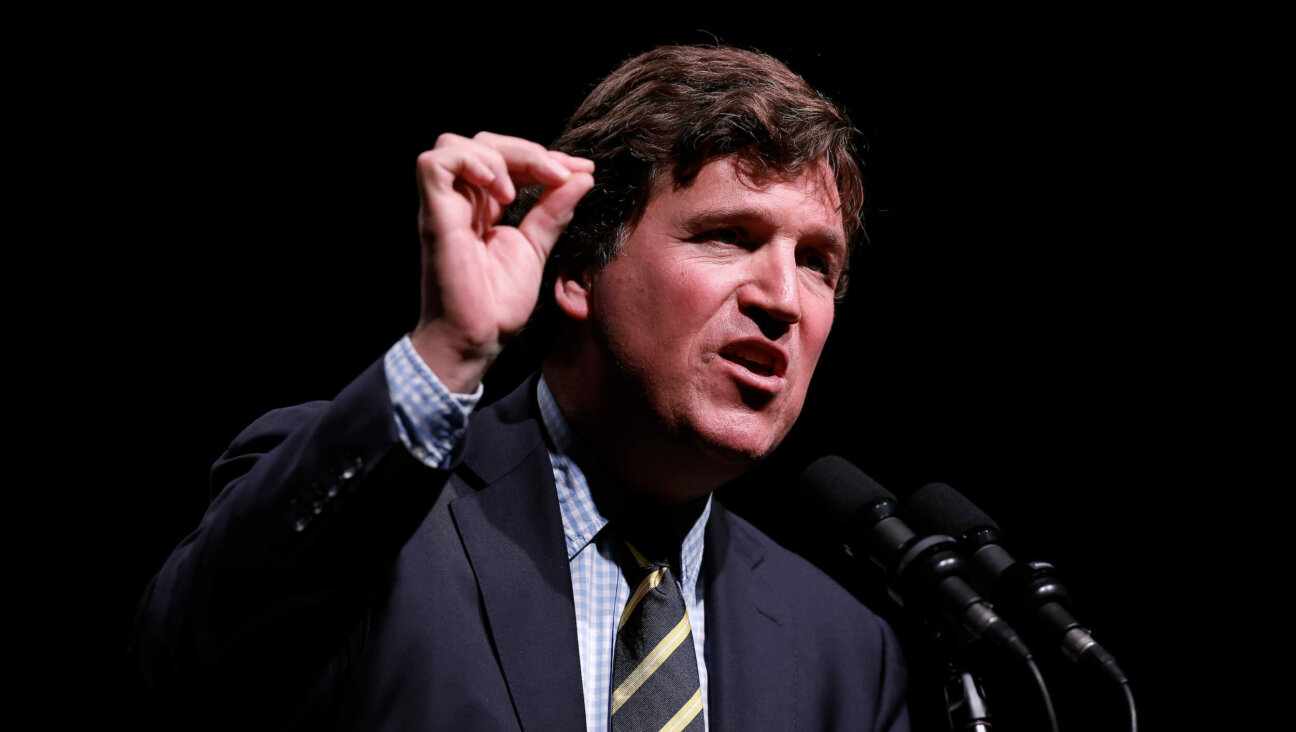How Bernie Sanders Reveals Our Own Jewish Identity Anxiety

Image by Getty Images
This election cycle, a curious side-story has developed around the question of Bernie Sanders’s Jewish identity. What of Jew is he? What’s he like at Kiddush? What’d he do at that kibbutz? Why doesn’t he talk more about being Jewish? Why doesn’t he talk more about Yiddish socialism? Should we force him to be more Jewish? What was up with that Holocaust comment? Why did he say his father was a “Polish” immigrant? Is he good for the Jews?
My sense is that this proliferation of commentary ultimately has very little to do with Sanders himself, and much more to do with the state of American Jewish identity today. Our quest for identity is projected onto him, making him into a figure through which we negotiate our own anxieties.
The solid Jewish ethnos so long taken for granted in our communal life and ordinary language has dissolved, as American Jewry becomes increasingly multiethnic and, in some sense, ambivalent about Jewishness itself. Shaul Magid has called this “post-Judaism,” a sign that “the ethnic anchor of Jewish identity has been irreparably torn in post-ethnic America.” The question “who is a Jew” has largely been superseded by two much more urgent and unanswerable questions: What does it mean to be an American Jew, and, if we dare to ask, why even be an American Jew at all?
The anxiety over Sanders’s identity is a product of the “post-Jewish” moment. We may not be ready yet to face the end of what Jacob Neusner famously called “American Judaism of holocaust and redemption.” Neusner’s critique was directed at an American Jewish identity forged between the existential threat of the Shoah and the miraculous, triumphal “return to history” marked by the founding of the State of Israel.
It is not coincidental that this mode of Jewishness dovetailed nicely with the general trajectory of ethnic politics in 1960s America, with its emphasis on scrappy immigrants who had come from somewhere else and overcome oppression to “make it” in America. Israel’s victory in 1967 made American Jewry confident in our identity, but most importantly, it gave us a clear sense of Jewish distinctiveness: To be Jewish was to be a survivor or survivor-by-proxy, which is also to say, a Zionist.
“The State of Israel,” wrote philosopher Emil Fackenheim, “is collectively what the survivor is individually.” To be an American Jew, then, was to be a living embodiment of the Shoah’s victims, demonstrated by a commitment to Jewish survival in terms of the State of Israel’s vitality.
Zionism and Holocaust memory, while still influential, are no longer sufficient to articulate a clear sense of Jewish identity for the future. For my generation, Israel has always been a nation-state like any other, one with which we are increasingly dissatisfied. And while the Holocaust rightly looms large, it has begun its own “return to history” in the consciousness of young American Jews, becoming a catastrophe like others in Jewish and world history.
It is not surprising, then, that there would be an effort to locate Bernie Sanders in a conventional narrative of American Jewish identity. Our ability to definitively establish that he’s a Kiddush Jew, or a Holocaust Jew, or a Yiddish socialist Jew, or some other easily recognizable trope would reassure us that Jewish identity is fundamentally easy to recognize and inhabit. The seeming inscrutability of his Jewishness, his refusal to unequivocally place himself within any of the familiar narratives or explicitly acknowledge his indebtedness to a “Jewish” tradition, makes us uneasy. But that ultimately says more about us than it does about him.
Evan Goldstein is a graduate student at Union Theological Seminary.
















